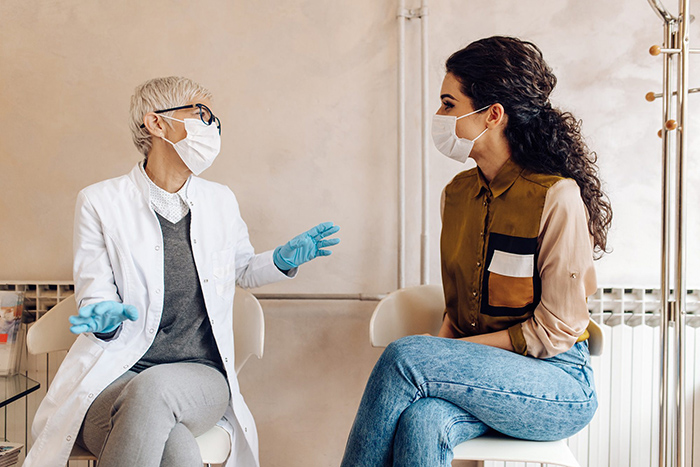3. You Don’t Need a Cervical Cancer Screening Every Year
Cervical cancer grows slowly. Many young women who have cervical dysplasia or an active HPV infection can clear the infection on their own, meaning there is sometimes no need for additional treatment. Because of that, the American College of Obstetricians and Gynecology (ACOG) along with many other public health organizations, including the Centers for Disease Control and Prevention (CDC), recommend the following cervical cancer screenings:
- Women ages 21 to 29 are encouraged to have a Pap test every three years.
- Women ages 25 to 29 can consider HPV testing every three years, but officials recommend a Pap test because HPV infections often go away on their own. Additional testing can lead to unnecessary and uncomfortable procedures.
- Women ages 30 to 65 have three options for cervical cancer screenings:
- Pap and HPV test – every five years (co-testing)
- Pap test – every three years
- HPV test – every five years
“These recommendations allow women to make the best choice based on their own personal history or preferences,” explains Dr. Starbuck. “Each option is based on solid scientific evidence. Your doctor can help you decide which is the best approach for you.”
Your doctor may also recommend more frequent testing if you have a history of abnormal Pap or HPV results or are high risk for developing cervical cancer.
4. Screenings Are Fast and Painless
The Pap and HPV tests only take a few minutes.
“The tests are easy and painless,” reassures Dr. Starbuck. “Your doctor and care team are there to ease any fears you have and keep you distracted. It’s over before you know it and you’ll have the peace of mind that you’re healthy.”
Typically, results are back within one to three weeks. Your doctor’s office will call you to explain your results and, if necessary, schedule any follow-up appointments.
5. Screenings Give You the Chance to Connect with Your Doctor
Regular doctor visits give you an opportunity to share any changes to your health or new goals you have for your physical or mental health. In fact, even though you may not need a Pap or HPV test every year, you should still schedule an annual appointment with your primary care doctor and gynecologist.
“An annual check-up is really a ‘check-in’,” says Dr. Starbuck. “Your doctor can recommend any additional tests or screenings you may need, like a mammogram or blood work, and you can bring up any changes to your own health or in your family. It’s the perfect opportunity to get the support, encouragement and resources you need to stay on track with your personal goals.”
Whether it’s time for a cervical cancer screening, mammogram, colonoscopy, or just time for a wellness exam, make the time today to schedule an appointment to see your primary care provider.
For more information about women’s care at Emory, visit Emory Clinic Gynecology & Obstetrics or call 404-778-3401.
About Winship Cancer Institute of Emory University
Winship Cancer Institute of Emory University is Georgia’s only National Cancer Institute-designated Comprehensive Cancer Center, a prestigious distinction given to the top 3% of cancer centers nationwide for conducting cancer research and providing training that is transforming cancer care, prevention, detection and survivorship. Winship discovers, develops, delivers and teaches some of the world’s most effective ways to prevent, detect, diagnose and treat each patient’s unique cancer. Cancer care at Winship includes specialists with deep expertise and experience in cancer; multidisciplinary evaluation, treatment planning and care coordination that caters to each patient’s individual needs; therapies supported by the latest advances in cancer research; and comprehensive clinical trials and support services.




